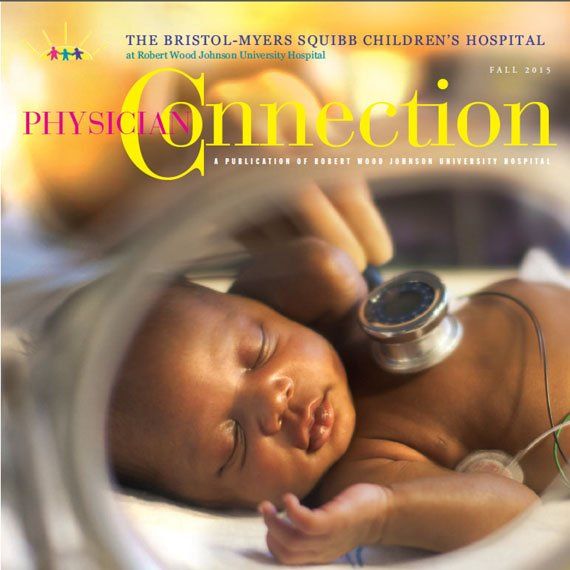
The Secrets of Happy Parenting
Maryann Bucknum Brinley
167 Cooper Avenue
Upper Montclair, NJ 07043-1810
mabrinley@verizon.net
973-202-5909 (cell)
973-746-1608

24 Feb, 2014
Until children are at least 4, they live in the “now” with little understanding of the concept of time. Even long after that age, telling a child, “Tomorrow we will talk.” …or, “Later, I can sit down” …or “Next summer, we will all be together” often makes no sense to them. For babies and little ones, the concepts of past, present and future are all disjointed. So watch out, children may hear your words without really understand your good intentions. Happy parents know that they must set “time” aside on so many different levels, not just talking about time but actually taking time in the now to interact with their children.
* Be a passive presence. Sit on the side of a sandbox or a bed or on the floor. Simply be there. * Take a walk together with no destination in particular and no need to hurry. (Finn, my daughter-in-law Erin, and even Charlotte love to walk, especially during this snowy winter when fresh air can change the whole demeanor of a long day.)
* Establish a time in your busy life when your child knows you will be likely to hear. Working moms and dads may want to consider a telephone appointment, in fact. One parent I remember would call the kids every day at 3 pm. * Be patient. Don’t try to pull words out of the mouths of babes. * Keep your own comments short.
* Don’t finish sentences. Don’t correct mispronunciations or grammatical errors. Under age 6, kids meander through thoughts or stories. * Let children own their own feelings. Don’t try to talk them out of an emotion even if you disagree or don’t understand what the big deal is all about. * Put that cell phone down. You may learn or see something quite extraordinary about your child if your brain isn’t too busy being somewhere else.

05 Feb, 2014
Babysitting the other day for Evie, my six-week-old grand-daughter, brought me a moment of pure wondrous delight. As I held her in my arms and we were talking closely, intimately, she looked back at me with eyes wide open in one of her quiet-alert states and responded very directly with soft “coos” and “ooos” to my voice. Her little head even moved in sync with my face. Honestly, her words felt very real. She knew I was telling her how much I loved her. And I was simply knocked down emotionally by how direct she could be in this little dialogue. A conversation had begun which I intend to continue throughout our lives. Evangeline was only three weeks old when our conversation began. Isn't she amazing in this photo?
I saw a quote in Oprah Magazine’s January 2014 issue that I’d like to pass along so you can use it every day of your life as a parent. “There is an extraordinary in the ordinary. Every day and every breath is magic – if we can only see it for what it is.” – Oprah Winfrey. While it’s not always easy or even possible to see that extraordinary in your ordinary parenting grind, especially while you are down there in the trenches with sleepless nights and endless rounds of dirty diapers and laundry, this is such a nice thought to keep in focus. Seriously, looking for even little hints of extraordinary might help you see all the presents in your present life.

05 Jan, 2014
To be a good listener, all of you – your mind as well as your body – has to be there. To listen, you need to put aside other thoughts. Concentrate on the speaker. Don’t worry about your to-do list. It won’t ever go away. Only then can you listen and really hear what children may be saying. As writer Pepper Schwartz said, “Conversation at home has stiff competition.”
Keep this in mind: You have two ears and one mouth so listen twice as much as you talk. Children who know that their parents hear them are less likely to feel alone when faced with pressures. To hear better than ever:
* Hang around your kids. * Start early (even with your newborn baby as I’ve been watching Maggie do!) and don’t ever stop. At three weeks, Evangeline is already listening to her mother Maggie!
* Tone of voice is critical. “What” can easily turn into a four-letter word when your volume is turned up to a strident point. * Angry? Wait before you open your mouth to speak. Being in good shape is important. Think: Am I preoccupied, hungry, furious, frustrated or too tired to think?
* Ask the right questions. And don’t use that word “why” to start off. “Why” will always put someone, especially a child, on the defensive.

17 Dec, 2013
Resentment is a mother’s greatest occupational hazard. You know what resentment is. It starts when you begin talking through clenched teeth. I call it the “Wouldn’t you think somebody in this house would…” syndrome.
Wouldn’t you think that…
* someone else could hang up a towel?
* he would call if he wasn’t coming home for dinner?
* they would appreciate all my efforts?
* someone would notice that I am exhausted and overwhelmed?
Motherhood can be such a shock. Before your first child is born, you may dream about being a mother but no one is prepared for labor, delivery and those first weeks and months of sleeplessness and anxiety. My daughter Maggie, who delivered her baby girl, Evangeline Pearl, last week is right in the middle of this shock to the system. In order to survive, you need to go out and refuel, even if it is just for a walk around the block without your baby. Meet Evangeline! The sweetest baby girl and just a day old here. Sometimes we mothers persevere, working diligently to reach the end of that long to-do list, not realizing it will never be completed and not recognizing how uptight, how resentful, we are.
If you serve your family resentment for meals, it will poison them.
Resentment is in the tone of your voice when you respond to a toddler who will not let go of your leg and who has been whining, “Mommy, Mommy, Mommy”. Resentment is a spoiler. No matter how hard you are working, if you are filled with resentment, you negate your efforts. Your negative mood permeates the atmosphere in which you are supposed to be nurturing your family.
Resentment is a romance killer. Anger and love can’t survive easily side by side.
You can’t raise happy children if you are resentful. They sense your resentment, not your love.

02 Dec, 2013
“Joy is not in things, it is in us.” – Benjamin Franklin
What comes to mind when you recall your happiest childhood memory? Without a doubt, the memories you are hanging on to are not the fancy gift-wrapped boxes or elaborately planned experiences. In fact, the memories we all treasure are the sincere, yet special, gifts of care, love, attention and time. When I consider all the energy and money we parents and grandparents spend on “wow” presents, “quality” occasions, or pre-programmed activities (especially at this holiday time of year!) trying to create one-of-a-kind moments for kids, I never cease to be amazed by how insignificant these financial sacrifices become in our memory banks. Those holidays spent with family aren’t memorable because of the toy you got or the pile of presents, they remain special forever because of the happy atmosphere. (Charlotte found the perfect little Christmas tree for herself this past weekend!)
You have the ability to create the happy memories your children will draw on forever. This is critical. To have happy memories from childhood is to have an emotional bank account filled with joy and strength.
Gifts? Presents? Please don't stress about them. You don’t need to give your children everything. You simply need to include them.
I picked up this wonderful quote from one of my favorite websites, http://www.brainpickings.org: “Who we are, if not measured by our impact on others? That’s who we are. We’re not who we say we are, we’re not who we want to be – we are the sum of the influence and impact that we have in our lives, on others” – especially when those others are our children.

21 Nov, 2013
“We have nothing to fear but fear itself.” – Franklin D. Roosevelt
I can still remember that feeling on the very first night of my son Zach’s life at home in my care. I awoke to the sound of nothing and my stomach lurched in fear as I leaned over his bassinet next to the bed. Still exhausted from labor, delivery, and the shocking realization that I was responsible for another human being, I was checking him for signs of life, of course. Was he still breathing? Fear is an emotion all normal parents know so well. It comes with the territory of parenthood from the very beginning. It’s healthy. It can certainly save lives. Yet it can also color everything you do as a parent and ruin your chances for happiness if you let it overwhelm you. Stress can also magnify your fears and make it impossible for you to say, “Yes” to your child’s natural urges to explore. Yes, there are dangers. Yes, your fears could be legitimate. But worrying will not get you anywhere. Deal with reality, not your imaginary disasters. “Worry is like a rocking chair: It gives you something to do but doesn’t get you anywhere.” – Evan Esar
Understand what your child comprehends, and is capable of … then you can say, “Yes” with more confidence. Err on the side of being cautiously permissive, removing dangers and obstacles along the way. But remember that touching a warm stove, balancing on, or falling off, a jungle gym, crossing a street alone, failing a test in school, suffering the consequences for making a mistake…are experiences that teach judgment. Honestly, a child’s good judgment does not come from restraint but from experience. And real life experience is a better teacher than you could ever be on your own.
Finn learning how to handle scissors for the first time, on his own:

06 Nov, 2013
How to “mother” your own children is not a skill you pick up from a manual, from other mothers or even from professionals, including pediatricians. As my daughter Maggie gets closer to her due date of December 4 th , I’ve been thinking a lot about this transition into motherhood . Look at it like learning how to ride a bike. When you first get up on a bicycle seat, you feel shaky. Maybe you even fall off the bike but you keep climbing back on because the sensation is pretty exhilarating. Finally, you start speeding along. It is a unique talent you had all along. You might not have tried it before or known how wonderful it would feel but you had the capacity to ride that bike all along.












